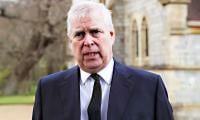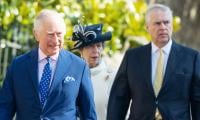Malik, Benazir accused of setting up offshore firm in 2001
LAHORE: It is quite interesting and flabbergasting at the same time that having been accused along with former premier the late Benazir Bhutto of setting up an off-shore entity once, country’s ex-interior minister Rehman Malik had all the audacity on Friday to appear as a witness before the Joint Investigation Team, which is currently probing the ruling Sharif family’s shell companies in Panama and investigating if the sitting Premier or his family members were involved in any illegal flight of capital---a phenomenon also called money-laundering.
In fact, International law firm Mossack Fonseca’s records reviewed by “The Indian Express” show that the trio —Bhutto, Malik and Jaffery — had set up a similarly named company in the British Virgin Islands but the political sensitivity of the association made the notorious Panamanian firm eventually back out, saying that “the partners of the firm have decided not to accept Mrs Bhutto as a client.”
Rehman Malik, however, rejected the accusation and termed it as propaganda against him and PPP. In its April 5, 2016 edition, or just two days after the Panama scam had surfaced, a prestigious Indian newspaper “The Indian Express” had stated: “Former Pakistan prime minister late Benazir Bhutto, her aide Abdul Rehman Malik and nephew Hassan Ali Jaffery Bhutto set up a company, Petroline International Inc, in the British Virgin Islands in 2001. The trio were later accused of bribing the Iraqi government to bag contracts under the United Nation’s Oil-for-Food Programme for a similarly named company Petrofine FZC, set up in Sharjah in 2000.”
The renowned Indian media house had added: “A committee set up by the United Nations under former head of US Federal Reserves, Paul Volker, found in 2005 that Petrofine FZC paid US$ 2 million commission to the regime of Saddam Hussein to win oil contracts worth US$115-145 million. In 2006, Pakistan’s National Accountability Bureau claimed that Petroline FZC was owned by Bhutto, Malik and Ali Jaffery. Bhutto and her Pakistan People’s Party denied the charges. International law firm Mossack Fonseca’s (MF) records reviewed by “The Indian Express” show that the trio —Bhutto, Malik and Jaffery — set up a similarly named company in the British Virgin Islands but the political sensitivity of the association made MF eventually back out, saying that “the partners of the firm have decided not to accept Mrs Bhutto as a client.”
The “Indian Express” had gone on to write: “Soon after the UN oil-for-food scam unravelled, a defiant Benazir was assassinated while electioneering in 2007. Her aide Malik is now a senator and a senior member in PPP’s Central Executive Committee. Earlier, an additional director in the Federal Investigation Agency, he served Benazir in Pakistan and in exile. Approached by London law firm Richard Rooney and Co, MF-BVI incorporated Petroline International Inc in the British Virgin Islands on September 7 2001 as a standard shelf company with an authorised capital of US$ 50,000 (US$1 per share). The names of Bhutto, Malik and Jaffery as directors and shareholders did not surface until September 28, 2001 when MF-London asked MF-BVI to issue 17,000 shares to Benazir Bhutto and 1, 65,000 each to Abdul Rehman Feroz Malik and Syed Hassan Ali Jaffery. Incidentally, this share structure — 34-33-33 percent among Bhutto, Malik and Jaffery — was identical to the alleged shareholding of Petroline FZC. The Indian Express tried to contact Malik at his Pakistan number but he was unavailable. Hassan Bhutto was not available for comment.”
It is imperative to note that on May 18, 2010, the then Pakistani President, Asif Ali Zardari, had pardoned Rehman Malik, who was sentenced in absentia to three years in jail by an anti-corruption court in January 2004.
Zardari had granted clemency to Rehman Malik to block his possible arrest and hence prevent his rule from plunging into a fresh controversy.
Rehman Malik, who was abroad at the time of the conviction, had appealed against the verdict but a Lahore court had rejected his plea and cancelled his bail. The president quickly intervened and within hours invoked his power to protect Malik from a possible detention.
The president used his “discretionary powers” to pardon Malik, Zardari’s spokesman Farhatullah Babar had said.
Referring to the hasty decision, Babar said the pardon was granted under article 45 of the constitution on the advice of Prime Minister Yousuf Raza Gilani, who had formally taken over constitutional powers from Zardari just a month before this incident under review.
“Mr Rehman Malik has all along maintained that he has been victimised due to political reasons in his absence from the country,” Farhatullah Babar had asserted.
-
 Christopher Nolan Reveals Why He's A Fan Of 'Fast & Furious' Movies
Christopher Nolan Reveals Why He's A Fan Of 'Fast & Furious' Movies -
 Ben Affleck Unable To Accept A New Lover Post Jennifer Lopez Divorce As He Still Grieves End Of Bennifer 2.0
Ben Affleck Unable To Accept A New Lover Post Jennifer Lopez Divorce As He Still Grieves End Of Bennifer 2.0 -
 Why Is Demi Moore Being Called Ozempic Victim?
Why Is Demi Moore Being Called Ozempic Victim? -
 Kaley Cuoco Makes Honest Comparison Of 'Big Bang Theory' And 'Charmed' Gigs
Kaley Cuoco Makes Honest Comparison Of 'Big Bang Theory' And 'Charmed' Gigs -
 Robert Picardo Shares Surprising Reaction On Returning To The 'Star Trek' Franchise
Robert Picardo Shares Surprising Reaction On Returning To The 'Star Trek' Franchise -
 AI Feud Deepens As Musk Targets OpenAI Over Safety Concerns
AI Feud Deepens As Musk Targets OpenAI Over Safety Concerns -
 'Paranoid' Andrew Fears Assassination: 'Panic Is Spiralling'
'Paranoid' Andrew Fears Assassination: 'Panic Is Spiralling' -
 Israeli Minister Hits Back At Prince Harry
Israeli Minister Hits Back At Prince Harry -
 Thousands Of Google Accounts Could Be Misused By Hackers: Report
Thousands Of Google Accounts Could Be Misused By Hackers: Report -
 Prince Harry Ignores Question About Andrew
Prince Harry Ignores Question About Andrew -
 Ryan Gosling On What Makes 'Star Wars: Starfighter' Different From Other Franchise Films
Ryan Gosling On What Makes 'Star Wars: Starfighter' Different From Other Franchise Films -
 Rumours About 'ambitious' Savannah Guthrie Dismissed
Rumours About 'ambitious' Savannah Guthrie Dismissed -
 Aly Michalka Reveals Why She Turned Down Offer To Star In 'Hannah Montana'
Aly Michalka Reveals Why She Turned Down Offer To Star In 'Hannah Montana' -
 Harry, Meghan Join William, Kate In Distancing Themselves From Beatrice, Eugenie
Harry, Meghan Join William, Kate In Distancing Themselves From Beatrice, Eugenie -
 'View' Co-host Sara Haines Makes Rare Confession About Married Life
'View' Co-host Sara Haines Makes Rare Confession About Married Life -
 Andrew Believes King Charles 'sacrificed' Him To Protect Institution?
Andrew Believes King Charles 'sacrificed' Him To Protect Institution?



